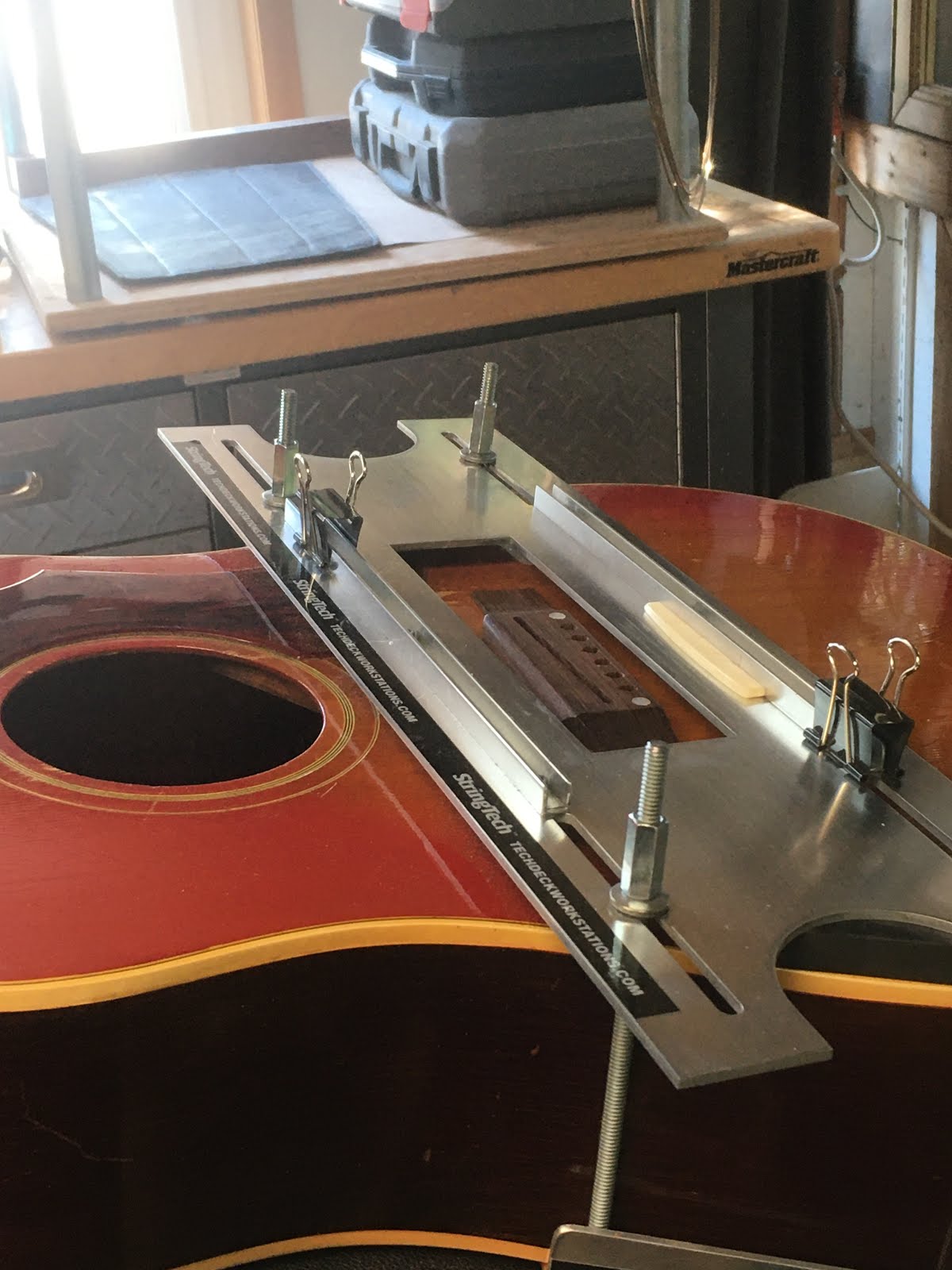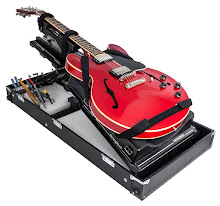Join me on Patreon for the full 300+ video Library
This post is dedicated to all of my students, past, present and future. The faith and encouragement you have shown, is a constant inspiration for me to "raise the bar" in every way possible so that all of us, collectively, continue to "Elevate the Art".
With Sincere Gratitude ... Michael
This is a pictorial / tutorial on a 65' Telecaster neck restoration.
It sat in a closet for 18 years !
The customer had explained that he had been to numerous places
to try and get it restored but had never felt comfortable leaving it with anyone
( understandably ) after the last guy to work on it,
had stripped the truss rod threads, rendering the neck " unadjustable".
When I explained in detail, precisely what steps I would take to restore this neck; he ( nervously ) agreed that the only other choice was to put it back in the closet for another 18 years.... or get it fixed !
Job Completed ( minus the string tree)
Brazilian Rosewood repair piece close to final levelling
Re-Slotted for Fret
Jeff Chevalier ( Copperhead Pickups - Guelph )
rewound the original neck pickup.
A wire was broken off, somewhere along the the way,
when some previous work was done
( by someone else ) for my customer.
Beautiful job on the pickup. It sounds amazing. Thanks Jeff !
There are a lot of things that are not original ... the guitar was stripped and refinished clear, the headstock was reamed out and schaller machine heads were installed, some fingerboard markers were changed, it was refretted ( pretty decent job ), a second string tree was installed and the customer painted the original pickguard black. This was all done many years ago, when the true value of instruments like this, wasn't really understood. These things could be reversed, but the customer is so happy to have a "playable guitar " after all these years that he isn't in any hurry to get any more work done at this stage. ( Can't say that I blame him )
Hot hide glue fills the threads and cavity as well as adhering the rosewood to the maple.
Curved caul, used to clamp rosewood while gluing.
The replacement Brazilian rosewood piece, glued and ready for levelling.
A combination of a damp cloth and a hair dryer
allowed me to carefully separate the rosewood from the maple.
The original truss rod was (very carefully) severed with a mini spherical metal burr after gaining access by removing the rosewood from the leading edge of the nut to the first fret slot. The original truss rod was then pulled out and the new stainless steel truss rod was threaded into the original square nut.
Old and new truss rods
Fastener configuration used to install the new stainless steel truss rod.
(Sorry ... for the slightly out-of-focus shots.
If you have any questions ... send me an email me and I'll clarify )
1979 Telecaster Re-Fret
Medium fret wire ( 6105 )
was used for this restoration
This is what the fretboard should look like after
carefully removing frets.
No chipping or missing lumber.
If you have any questions ... send me an email me and I'll clarify )
1979 Telecaster Re-Fret
was used for this restoration
The frets need to be removed from
bass side to treble side
in order to avoid damage to the fingerboard.
The frets need to be removed from
bass side to treble side
in order to avoid damage to the fingerboard.
carefully removing frets.
No chipping or missing lumber.
I have added these shots of a recent maple
fingerboard Fender refret, to illustrate again,
how these frets need to be very carefully removed,
to prevent damage to the fretboard.
The rosewood is even more prone to chipping
than the maple fingerboards.
These vintage rosewood Fenders
have very thin fingerboards.
The rosewood fingerboards on vintage Tele's and Strat's
are not thick enough to enough to level after fret removal.
All the more reason to proceed with extra caution !



































